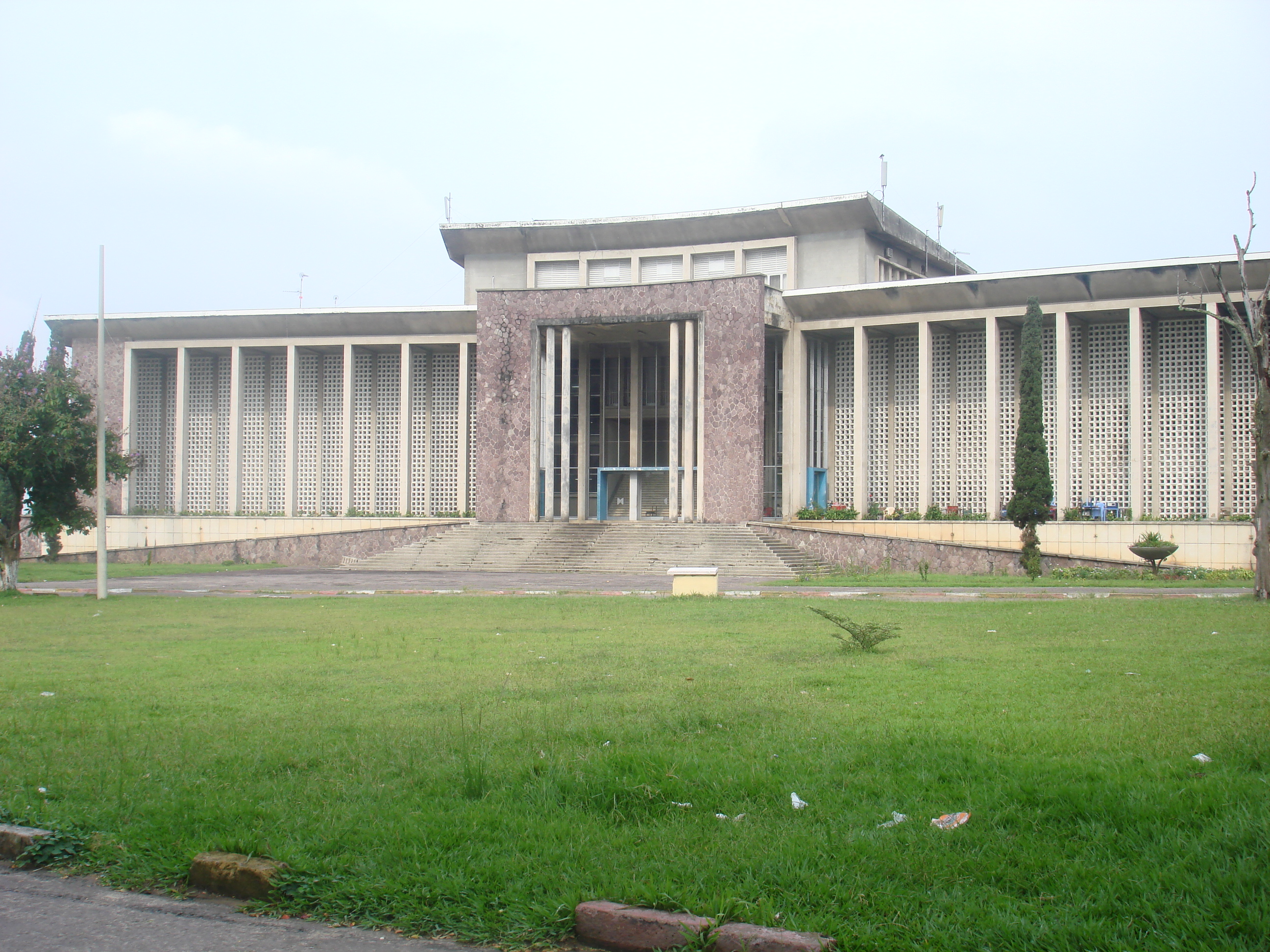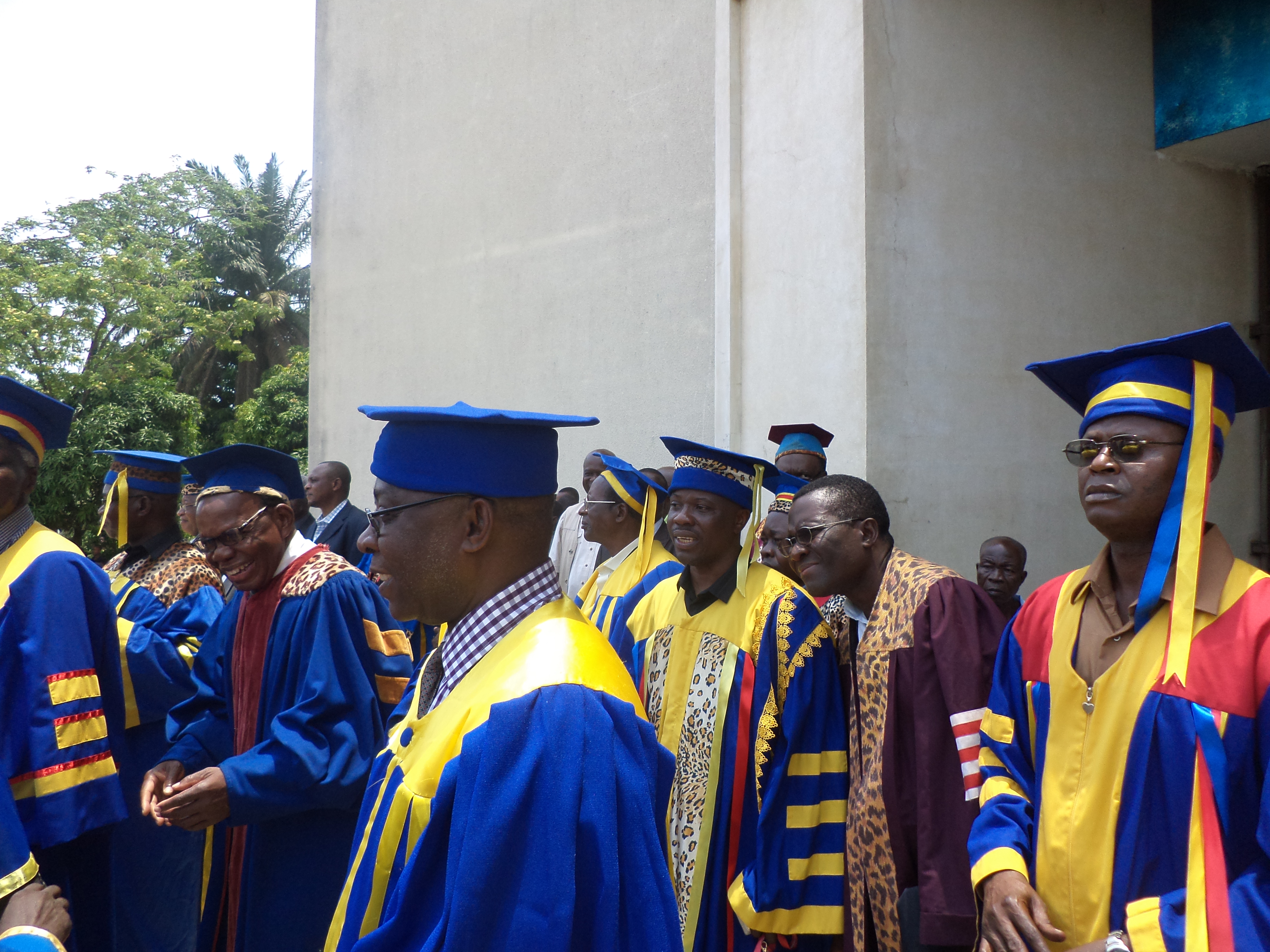UNIKIN on:
[Wikipedia]
[Google]
[Amazon]
The University of Kinshasa (french: Université de Kinshasa), commonly known as UNIKIN, is one of the three major universities in the Democratic Republic of the Congo, together with the
 In August 1971, the university was merged with the ''Protestant Autonomous University of Congo'' (''Université Libre du Congo'') and ''The University of Congo at Lubumbashi'' (founded in 1956) into the ''National University of Zaire'' (Université Nationale du Zaïre, UNAZA). Ties were cut with the Catholic University of Leuven, and funding for the university began to drop precipitously. At this point, the university had an enrollment capacity of just 5,000.
The decision to merge the private universities into one centralized system was made, at least partially, to counter concerns about political demonstrations on campuses. The entire higher education system was run by a single rector and faculty and staff were put on the federal payroll.
By 1981, the centralized system became too burdensome and the decision was made to re-establish the three separate institutions: the University of Kinshasa,
In August 1971, the university was merged with the ''Protestant Autonomous University of Congo'' (''Université Libre du Congo'') and ''The University of Congo at Lubumbashi'' (founded in 1956) into the ''National University of Zaire'' (Université Nationale du Zaïre, UNAZA). Ties were cut with the Catholic University of Leuven, and funding for the university began to drop precipitously. At this point, the university had an enrollment capacity of just 5,000.
The decision to merge the private universities into one centralized system was made, at least partially, to counter concerns about political demonstrations on campuses. The entire higher education system was run by a single rector and faculty and staff were put on the federal payroll.
By 1981, the centralized system became too burdensome and the decision was made to re-establish the three separate institutions: the University of Kinshasa,
 There are twelve academic divisions at the university:
* Faculty of Arts and Humanities
* Faculty of Law
* Faculty of Economics and Management
* Faculty of Social Sciences Policy and Administrative
* Faculty of Engineering
* Faculty of Science
** The following subjects are available to study in the Faculty of Science: Physics, mathematics, computer science, biology, chemistry, geology.
* Faculty of Agricultural Sciences
* Faculty of Psychology and Educational Sciences
* Faculty of Medicine
**The following subjects are available to study in the faculty of medicine: biological medicine, physical medicine and dentistry.
* Faculty of Pharmaceutical Sciences
* Faculty of Veterinary Medicine
* Faculty of Petrochemistry and Renewable Energies
There are twelve academic divisions at the university:
* Faculty of Arts and Humanities
* Faculty of Law
* Faculty of Economics and Management
* Faculty of Social Sciences Policy and Administrative
* Faculty of Engineering
* Faculty of Science
** The following subjects are available to study in the Faculty of Science: Physics, mathematics, computer science, biology, chemistry, geology.
* Faculty of Agricultural Sciences
* Faculty of Psychology and Educational Sciences
* Faculty of Medicine
**The following subjects are available to study in the faculty of medicine: biological medicine, physical medicine and dentistry.
* Faculty of Pharmaceutical Sciences
* Faculty of Veterinary Medicine
* Faculty of Petrochemistry and Renewable Energies
Homepage of the University of Kinshasa
{{Coord, 4, 25, 10, S, 15, 18, 35, E, display=title, region:CD_type:edu_source:dewiki University of Kinshasa
University of Kisangani
The University of Kisangani (UNIKIS) is located in the city of Kisangani in the Democratic Republic of the Congo. It was founded in 1963 by Protestant missionaries as the Free University of the Congo (french: Université libre du Congo, ULC); it ...
and University of Lubumbashi
The University of Lubumbashi (), also known by the acronym UNILU, is one of the largest universities in the Democratic Republic of the Congo. It is located in Lubumbashi in Haut Katanga Province, previously Katanga Province. The campus is locate ...
. Originally founded in 1954 as Lovanium University during Belgian colonial rule, the current university was established following the division of the National University of Zaire
The National University of Zaire (french: Université nationale du Zaïre, or UNAZA) was a federated university in Zaire (the present-day Democratic Republic of the Congo). It was formed in August 1971 when the country's three existing universiti ...
(UNAZA) in 1981. It is located in Kinshasa
Kinshasa (; ; ln, Kinsásá), formerly Léopoldville ( nl, Leopoldstad), is the capital and largest city of the Democratic Republic of the Congo. Once a site of fishing and trading villages situated along the Congo River, Kinshasa is now one o ...
.
The university had an enrollment of 29,554 and a faculty and research staff of 1,929 in the 2018–19 academic year, and currently has twelve academic divisions.
Campus
The university is located about south of central Kinshasa, in the suburb of Lemba. Many of the campus facilities have deteriorated and are in poor condition, or lack proper instructional tools - in 2003, the science library had as few as 300 titles in its collection. Since 2001, the university has hosted Cisco Academy, a joint project sponsored by the American software company Cisco and the United Nations Development Programme. The academy focuses on providing recent technology, training students to install and operate computer networks and all coursework is online. The university does not feature in any university rankings.History
Lovanium University
The university was established in 1954 as Lovanium University by Belgian colonial authorities following criticism that they had done too little to educate the Congolese people. The university was originally affiliated with theCatholic University of Leuven
University of Leuven or University of Louvain (french: Université de Louvain, link=no; nl, Universiteit Leuven, link=no) may refer to:
* Old University of Leuven (1425–1797)
* State University of Leuven (1817–1835)
* Catholic University of ...
in Belgium. When it opened, the university received heavy subsidies from the colonial government
and funding from the Ford Foundation, the Rockefeller Foundation
The Rockefeller Foundation is an American private foundation and philanthropic medical research and arts funding organization based at 420 Fifth Avenue, New York City. The second-oldest major philanthropic institution in America, after the Carneg ...
and the United States Agency for International Development and was lauded as the best university in Africa.
National University of Zaire
Kisangani University
The University of Kisangani (UNIKIS) is located in the city of Kisangani in the Democratic Republic of the Congo. It was founded in 1963 by Protestant missionaries as the Free University of the Congo (french: Université libre du Congo, ULC); it w ...
, and the University of Lubumbashi
The University of Lubumbashi (), also known by the acronym UNILU, is one of the largest universities in the Democratic Republic of the Congo. It is located in Lubumbashi in Haut Katanga Province, previously Katanga Province. The campus is locate ...
.
Decline in funding
Newly independent, the University of Kinshasa continued to struggle financially throughout the 1980s. By 1985, the campus was in decline, strewn with trash and the dormitories in poor condition. The university's cafeteria stopped serving meals and pay for professors slipped as low as $15. In response to declining government funds tuition was raised 500 percent in 1985, and in 1989, deeper cuts were made, with the suspension of nearly all scholarships and financial aid and institution of new fees. Through the 1980s, as much as 90 percent of the university's budget was paid for by the government, with only a small amount of revenues coming from student tuition. By 2002, the government only contributed $8,000 (USD) of the university's estimated $4.3 million annual budget (not including some personnel costs which are paid directly by the state).Nuclear reactor
The first nuclear reactor in Africa was built at the University of Kinshasa in 1958. The reactor, known as TRICO I, is a TRIGA reactor built by General Atomics. TRICO stands for a combination of TRIGA or “Training Isotopes General Atomic” and Congo. The reactor was built while the country was still under Belgian control, and with the assistance of the United States government, under the Atoms For Peace program. TRIGA I was estimated to have a 50-kilowatt capacity and was shut down in 1970. In 1967, the African Union established a nuclear research center, the Regional Center for Nuclear Studies and the United States agreed to provide another TRIGA reactor. The second reactor, TRICO II, is believed to have a one-megawatt capacity and was brought online in 1972. In 2001, the TRICO II reactor was reported to be operational, but was apparently put on standby in 1998. The government of the Democratic Republic of Congo stopped funding the program in the late 1980s, and the United States has since refused to ship replacement parts. International observers have long been concerned about the safety and security of the two nuclear reactors and the enriched uranium they contain.Faculties and divisions
Public figures
Former teachers
* Marcel Lihau, lawyer *Mabi Mulumba
Évariste Mabi Mulumba (born 22 April 1941) is a Congolese former politician. He was Minister of Finance of Zaire from October 1986 to January 1987. He served as the First State Commissioner of Zaire
Zaire (, ), officially the Republic of ...
, Congolese politician
Notable alumni
*Didier Etumba
Didier Etumba Longila (born 15 July 1955) is a retired Congolese military officer who served as Chief of General Staff of the Armed Forces of the Democratic Republic of the Congo from 2008 until 2018.
Etumba attended and graduated from the Royal ...
, Congolese military officer
* Sylvestre Ilunga
Sylvestre Ilunga Ilunkamba (born 1947, Katanga Province, Belgian Congo) is a Congolese politician who was appointed as the Prime Minister of the Democratic Republic of the Congo in May 2019, formally establishing his government in August 2019. ...
, Congolese politician
* Steve Wembi
Steve Wembi (born 20 July 1984) is a criminologist and investigative journalist based in Kinshasa, Democratic Republic of the Congo and in Nairobi, Kenya.(f"« Congo in Conversation » de Finbarr O’Reilly, lauréat du prix Carmignac" RFI, Apri ...
, Congolese criminologist and investigative journalist
* Webe Kadima
Webe Celine Kadima (born 1958) is an associate professor of chemistry at the State University of New York at Oswego.
Early life
Kadima was born in Burundi and moved to the Democratic Republic of Congo when she was 4 years old. She had to g ...
, Congolese academic
* Emmanuel Ramazani Shadary
Emmanuel Ramazani Shadary (born 29 November 1960) is a politician in the Democratic Republic of the Congo, who was a presidential candidate in the December 2018 presidential elections in the country. He was selected following consultations wit ...
, Congolese politician
* Alain Daniel Shekomba
Alain Daniel Shekomba Okende (born 13 April 1970, Kananga) is a Congolese physicist, businessman, and politician. Formerly a professor at the University of Kinshasa, where he had been a student. He was a presidential candidate in the 2018 Democra ...
, Congolese businessman, politician and physicist
* Jacqueline Penge Sanganyoi
Jacqueline Penge Sanganyoi is a Congolese politician from the Democratic Republic of the Congo.
She is the current Minister to the Prime Minister, Sylvestre Ilunga and is part of the FCC, the party Félix Tshisekedi is in. She was appointed on ...
, Congolese politician
References
Further reading
*External links
Homepage of the University of Kinshasa
{{Coord, 4, 25, 10, S, 15, 18, 35, E, display=title, region:CD_type:edu_source:dewiki University of Kinshasa
Kinshasa
Kinshasa (; ; ln, Kinsásá), formerly Léopoldville ( nl, Leopoldstad), is the capital and largest city of the Democratic Republic of the Congo. Once a site of fishing and trading villages situated along the Congo River, Kinshasa is now one o ...
Education in Kinshasa
Schools in Kinshasa
1954 establishments in the Belgian Congo
Educational institutions established in 1954